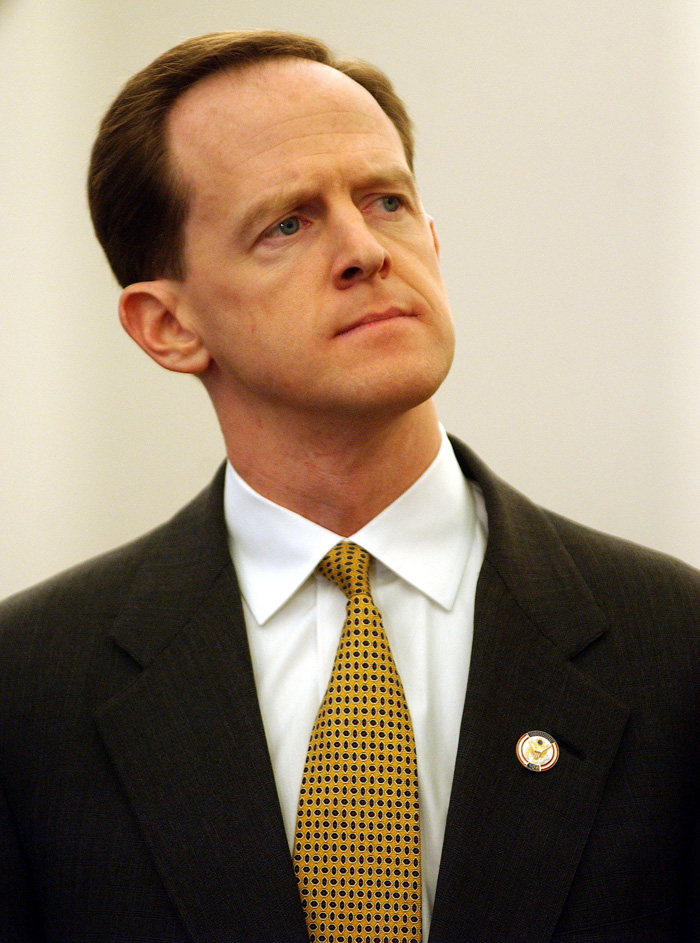Federal legislative proposals to help consumers to effectively stop companies from tracking them online without their knowledge might “break the internet,” a key Republican senator working on the legislation said in a hearing on the issue on Wednesday.
“In a world where people voluntarily share very personal information on web sites like Facebook and Twitter on a daily basis, I’m not entirely sure what consumer expectations are when it comes to privacy, but I am sure that different consumers have different expectations about privacy,” said Sen. Pat Toomey (R-PA) in a Wednesday morning Senate Commerce Committee hearing on privacy and data security.
Toomey said he was worried that the legislative proposals currently being discussed in Congress are a “solution in search of a problem.”
“I’m sure no-one on this committee wants to break the internet, or limit many of the popular online services that consumers can access in order to avoid fundamentally altering the current online experience in creating these unintended consequences. I just urge that we all proceed with caution,” he said.
Toomey is the ranking member of Commerce’s Consumer Protection, Product Safety, and Insurance subcommittee.
The full Commerce Committee met Wednesday to garner the on-the-record views of the merits of two legislative proposals the committee is working on. Federal regulators with jurisdiction over consumer protection and telecommunications issues, industry representatives, and the Obama administration were there to weigh in.
Commerce Committee Chairman Sen. Jay Rockefeller (D-WV) has introduced a bill that proposes to give the Federal Trade Commission more power in enforcing technical measures that would help consumers to opt out of being tracked.
Sen. John Kerry (D-MA) has co-sponsored a bill with Sen. John McCain, (R-AZ) they’ve called the Commercial Bill of Rights Act of 2011.
The legislation would create the nation’s first comprehensive privacy law. The proposed legislation would pre-empt the multitude of state laws in place right now that address issues like the selling of sensitive personal information, and what companies should do, and are liable for, if customers’ data is breached.
The proposals are just two of dozens of bills under active consideration in both houses of Congress as lawmakers struggle to figure out what their role is in a data-driven society where everyone and everything is connected to each other, and there is no clear common cultural understanding of what “privacy” means.
As Toomey’s statements suggested, the committee is at an impasse over which effective measures can be implemented legally.
“We’ve got a problem here in trying to get a federal consensus to pass legislation if there’s not a baseline level of understanding and acceptance of what we’re doing here,” Kerry said, responding to Toomey’s remarks.
“I’ve been on this committee for a long time now, and I have fought diligently to protect the open architecture, not to tax, to have net neutrality, do all the things necessary, but I do believe that it’s imperative to have some kind of standard by which people are acting here,” he said.
“I don’t believe that this is a problem looking for a solution,” said Julie Brill, a Federal Trade Commissioner who testified at the hearing.
The issue in online and location-based tracking isn’t about automatically placing restrictions on internet companies, she and many of the other panelists made clear. It’s about getting companies to disclose and make clear to their users and customers what information they’re collecting, and giving them an easy choice to make about how, where and if they want to be tracked.
Brill mentioned the use of mobile apps as an example — many companies that build apps either don’t have privacy policies, or policies that are so long that they’re incomprehensible.
Cam Kerry, general counsel at the Commerce Department, said that surprisingly, many companies had actually asked the Administration to enact comprehensive federal privacy legislation.
Like the other panelists, Austin Schlick, the Federal Communications Commission’s general counsel, said that that development could be a desire to create a trustworthy environment online.
Part of the Obama Administration’s National Broadband Plan addresses privacy issues. It notes that a lack of privacy online could discourage consumers from wanting to sign up for service.






